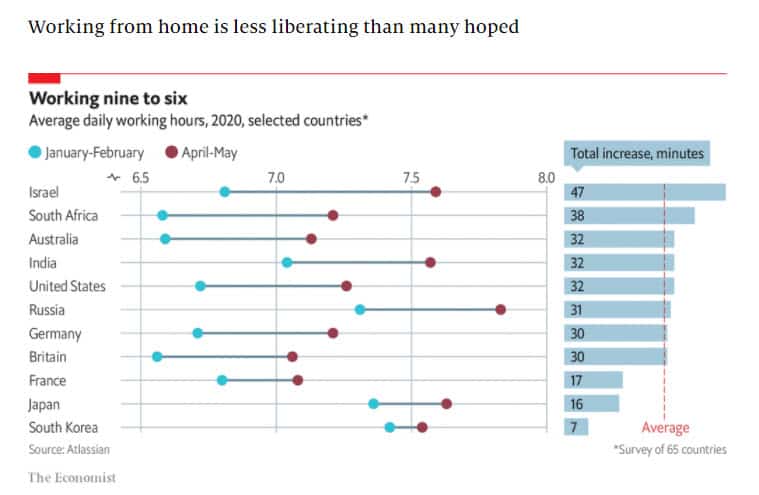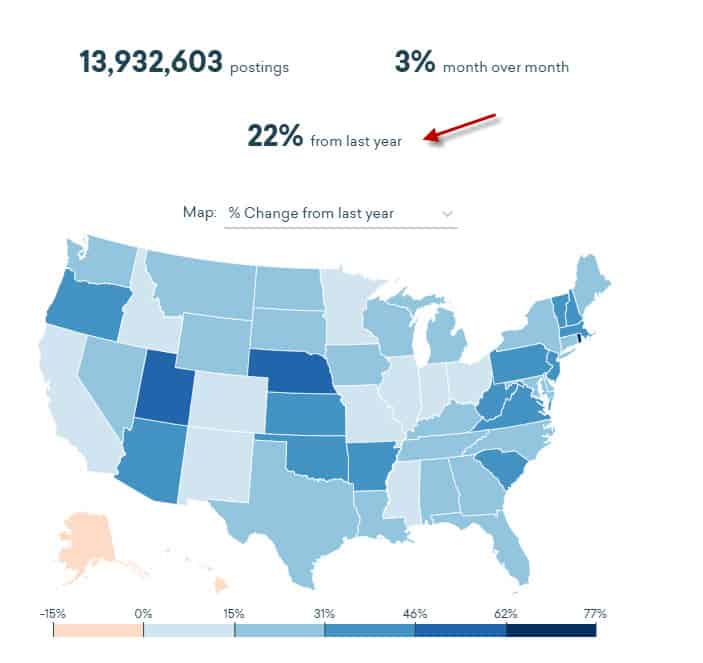Overwork Is Not A Strategy For Response To The Pandemic
This week someone leaked a survey by Goldman Sachs which shows that new analysts often work more than 95 hours per week and sleep only 5 hours each night. The survey then points out that these employees’ mental and physical health has plummeted, with 100% stating that the workload has negatively impacted family relationships and 75% needing counseling or therapy from stress.
Now I have no way of knowing how representative this is (it only came from 13 respondents), but it does make a point. Overwork and unrealistic deadlines are not a good business strategy.
I know, we all “pay our dues” in our careers, and I have spent plenty of time working weekends and evenings when I knew a deal (or my job) was on the line. But as this small study points out, overwork does not create quality output and it can have a very negative impact on your brand.
So as we crawl our way out of this pandemic, let me make a few points (and much more of this will be clear when we launch our massive new research on Employee Experience later this quarter).
1/ Everyone feels stressed, traumatized, and overworked at the moment.
The Pandemic has affected everyone (from front-line workers to senior managers) in significant ways, and most of us are tired and ready for a break. As we know from public health statistics, the pandemic is not yet over, so we still need endurance and patience to see this through.
People under stress are likely to perform poorly. Research last week showed that 66% of UK workers feel “extreme anxiety” (25% have sleep problems), overall mental health has declined, the birth rate is down, and many baby boomers have just decided to retire. People are just fed up.
And employees are working more hours. While many of us no longer commute, our “time at work” has increased by almost an hour a day.
 |
2/ People under stress do not respond well over time.
The organization which understands this the best is the US Military. Many Army and other agency studies show that soldiers must rest, sleep, and focus in order to fight a war. The same thing is true in business. I know many of you have taken time off this year, but I suggest we give our organizations a lot of “rest time” and “vacation time” as the pandemic comes to an end.
A study by the DOD this year details the health and performance risks of overwork, including a reduction in mental health, brain injury, and poor performance. This extensive study recommends naps, reduction in caffeine, and a focus on giving soldiers eight hours of sleep. The study also found that work-related stress creates insomnia, which in turn creates more stress. The bottom line from the military is this: leaders must role model rest and recovery.
For those of us in business, this means giving people time off, avoiding calls and emails on weekends and evenings, and just respecting the fact that every employee is overworked and stressed right now.
3/ The job market is going to get crazy.
The third reason to deal with this issue is the crazy job market ahead. As I wrote about a few weeks ago, the economy is heating up fast. This week unemployment claims plummeted and it’s clear to me that jobs are on the rise. EMSI data shows that we have 22% more jobs open now than we did a year ago and this number keeps rising. So hiring people is going to get tough.
 |
To make the situation worse, Baby Boomers are retiring at twice the rate of a year ago so more than ten million people have “left the workforce” in the US over the last 14 months. My friends at EMSI are soon to release more research on this and their findings say that “the luxury of posting a job and seeing lots of applicants” is about to end. And hiring is increasing: Delta and Southwest each have thousands of jobs open, for example.
What this means is that you don’t want to burn people out. In fact, the biggest trend in HR right now is the increased focus on internal mobility, reskilling, and gig and contract work inside the company. If your people feel burned out and overworked they may just “check out” and do gig work for someone else. Roughly 45% of Americans now do “side hustles” and it’s over 50% for younger workers.
Given that so many workers now work from home, it’s easier than ever to “switch jobs.” You don’t have to commute or move anymore. So give your people a break.
4/ Employment Brand will reflect your culture.
The final point is this. It may be perfectly OK for Goldman to ask people to work 90 hours a week, but for most employers, this will damage your brand. Amazon has gotten quite a reputation for overworking their people and now they face unions. This is not the time to get a reputation for overwork.
Amazon’s “Time on Task” system tracks how many minutes you’re not at your station. Not only is it exhausting and degrading to employees, it has become the source of Amazon employee union drive in Alabama, which is picking up speed.
In fact, I believe the opposite is happening.
Research by Glint, Qualtrics, and others now find that the #1 driver of employee engagement is belonging, trust, and respect. (Our upcoming EX research will detail this.) Employees have been through more than a year of fatigue and trauma from the Pandemic. Now is the time to give people a rest, remind them you are here for them and help them build resilience for the growing economy ahead.
Resources To Help
Read our Pandemic Response Study, where we detail the practices which defined business resilience over the last year.
Visit our Academy program on Resilient HR: an in-depth look at how you can organize your entire HR function around organizational resilience.
Dig into The Big Reset, examples of what companies are doing to respond to the pandemic and new economy.
Read my Predictions for 2021, where I detail the 15 major trends in workplace, workforce, and HR strategy for the exciting economy ahead.
